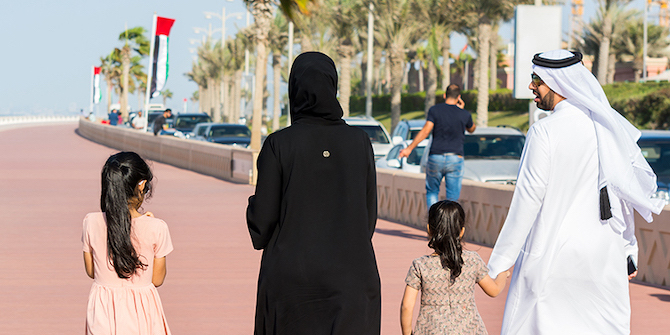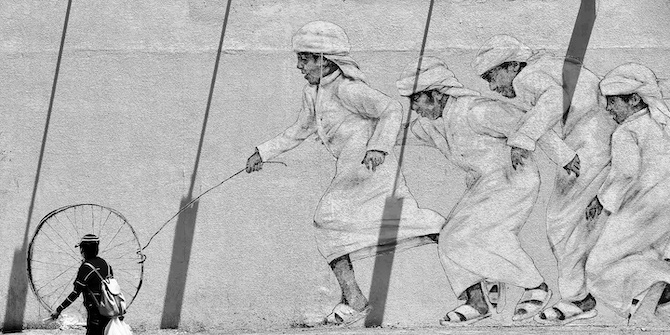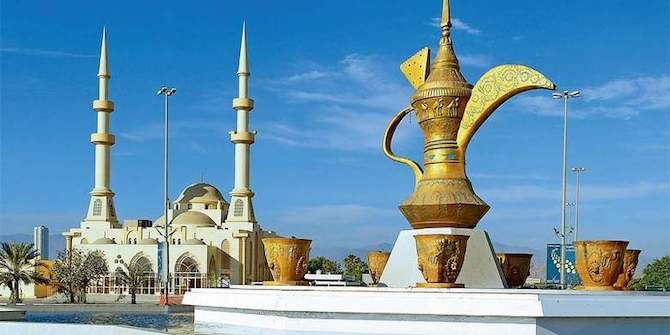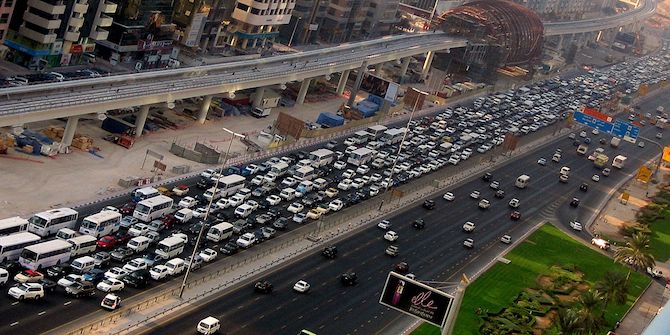by Courtney Freer
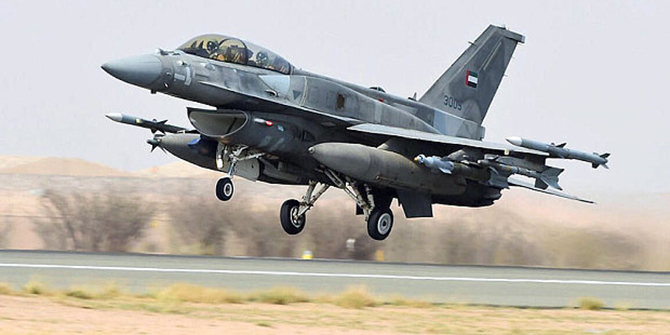
Last Thursday, Abu Dhabi Crown Prince Shaykh Mohammed bin Zayed al-Nahyan shocked many with his announcement over Twitter that the ‘war is over’ for Emirati troops in Yemen, apparently quoting Minister of State for Foreign Affairs Anwar Gargash’s statements at a majlis meeting. Interestingly, the Crown Prince allowed in his statement for the continued involvement of Emirati troops in ‘counterterrorism operations’ inside Yemen. Indeed, despite the announcement, Emirati troops remain guarding the airport and President Abd-Rabbu Mansour Hadi’s palace in Aden, where they also maintain a camp. One day after the Crown Prince’s Twitter statement, Minister of State for Foreign Affairs Anwar Gargash did an about-face, asserting that the Emiratis ‘are at war, and I am saddened that my comments have been misquoted and interpreted to serve a foreign agenda that does not have good intentions toward the people of the region, especially the people of the Gulf’.
Minister Gargash thus publicly corrected the most powerful political figure in the UAE, raising serious questions about the unity of Emirati purpose in Yemen and Emirati commitment to the Saudi-led war in that country. Gargash further assuaged fears of a breakdown of the Gulf coalition in Yemen by insisting that the Emirati–Saudi relationship has been ‘reinforced by the Yemen crisis’ and remains ‘essential for the future’. Mohammed bin Zayed, meanwhile, has remained silent on the matter, suggesting that Gargash’s U-turn may reflect divisions inside the Emirati establishment about the Yemen crisis. Examining possible causes of this internal inconsistency, it seems likeliest that Emirati unease with Saudi cooperation with Muslim Brotherhood affiliates inside Yemen is worrying portions of the Emirati leadership. Shaykh Mohammed bin Zayed has been particularly outspoken in his criticism of the Muslim Brotherhood and was instrumental in the most recent crackdown on the organisation inside the UAE. It is thus unsurprising that he would find unpalatable the recent connections between Saudi Arabia, which has also historically opposed Brotherhood influence within its borders, and Brotherhood groups inside Yemen.
Domestic Emirati Discontent?
The timing of the Crown Prince’s initial statement is unlikely coincidental. Four Emirati pilots died in two helicopter crashes the week before. These are by no means the first casualties in the Yemen war; overall, more than 80 Emirati soldiers have been killed since they began operations in Yemen in March 2015. In fact, 45 Emirati soldiers died on 5 September 2015, the deadliest day in the country’s short military history.
Despite such losses, public outcry about military casualties, a very new problem for Gulf states, has been muted, and not least due to the passage of more restrictive media laws that make criticism of government policy nearly impossible. In the UAE, legislation passed in July 2015 tightened restrictions on media through the Anti-Discriminatory Law. The first person tried under this law was, interestingly, a Saudi writer who criticised Emirati involvement in Yemen over Twitter. In March 2016, an Omani man was sentenced to three years in prison in the UAE for calling Emiratis who died in Yemen ‘cowards’ in Whatsapp messages on the charge of ‘ridiculing and damaging the reputation of state symbols’. The state thus remains sensitive to domestic complaint about ongoing involvement in the Yemen war, yet, for the most part, any domestic discontent about the war remains muffled.
International criticism of the war appears to be increasing in recent weeks, however, and is more likely to be influencing recent Emirati actions than any latent domestic discontent. Indeed, two weeks ago, a United Nations report accused Saudi Arabia of youth civilian deaths inside Yemen, leading to a blacklisting of the state that was quickly reversed. An April Human Rights Watch report also criticised the GCC coalition for civilian deaths in Yemen. While such public condemnation of the Yemen war is certainly relevant, the most likely explanation for the inconsistent Emirati statements is the different tactics the Emiratis and Saudis have taken inside Yemen, which are to a great extent informed by their views on the Muslim Brotherhood.
A Divided Coalition?
Saudi and Emirati divergent paths inside Yemen have been no secret. As Peter Salisbury recounts in his latest Chatham House report, the UAE has increasingly come to focus its military efforts on winning back Aden with the support of southern fighters before moving further South, while Saudi troops have primarily supported fighters from the Mohsin and al-Ahmar groups; it is unclear whether this was previously agreed upon as a strategy.
Further, after King Salman came to power in Saudi Arabia in January 2015, Saudi Arabia, looking for partners inside Yemen, became more open to cooperating with Islamist, particularly Muslim Brotherhood-linked groups, than did the UAE, which has long supported crackdown on the group inside its borders. In fact, fighters in Taiz believed that they were being purposely deprived of support from Emirati troops due to their purported affiliation with Islah, the Yemeni branch of the Muslim Brotherhood. Certainly, Emirati troops were not involved in Taiz and have instead been more active in aiding security and military forces in Aden, training large numbers of Yemeni troops to help them protect themselves from Houthis and al-Qaida. In fact, some Houthis have posited that Emirati drawdown could be a strategic decision after destruction of Aden and recent deadly crashes killing Emirati troops.
Just a week prior to Shaykh al-Nahyan’s statement about the end of Emirati military operations, Saudi Foreign Minister Adel al-Jubair announced that Saudi Arabia had slowed its own military operations inside Yemen, in anticipation of UN-sponsored peace talks, which are, notably, more likely to lead to a ceasefire than to a political solution, explaining the continued need for Gulf military presence in Yemen.
Significantly, the UAE-backed southern groups, along with the UAE itself, are not involved in the peace talks, though these groups have helped to push out Houthi-Saleh groups from southern Yemen last year. This lack of involvement indicates the UAE’s distancing from the process, largely due to increasing dislike of the Hadi government, especially his vice president and deputy commander of the armed forces Ali Mohsen al-Ahmar, whom the UAE consider a supporter of the Muslim Brotherhood. Though the war has continued largely unchanged despite recent official Emirati statements, the fact that they were publicly made reveals potential divisions in purpose and tactics between the most powerful coalition partners inside Yemen. It remains to be seen how exactly this disagreement will affect a potential peace agreement, which it seems likely at present, Saudi leadership will dictate the outcome of.



